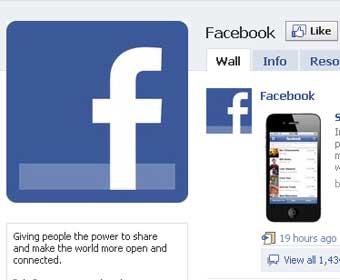Facebook has been at the forefront of the growth in mobile data usage in recent years. It is indisputably one of the big stars of mobile; one that most operators have wanted to ally themselves with to drive the sale of data plans on their networks. Yet, by Facebook’s own admission, mobile could be its Achilles heel.
May 17, 2012

By Guillermo Escofet
Facebook has been at the forefront of the growth in mobile data usage in recent years. It is indisputably one of the big stars of mobile; one that most operators have wanted to ally themselves with to drive the sale of data plans on their networks.
Yet, by Facebook’s own admission, mobile could be its Achilles heel. That’s because, although more and more of its traffic is derived from mobile phones, it has yet to properly enable its mobile properties with advertising – Facebook’s main revenue stream. As it said in a revision of its S-1 filing with the US Securities and Exchange Commission, ahead of the its IPO this week, “We do not currently directly generate any meaningful revenue from the use of Facebook mobile products, and our ability to do so successfully is unproven.”
More than half of Facebook’s users (488 million as of March) are already accessing the social network via mobile and that proportion is constantly growing, especially now that most of its new members are coming from emerging markets, where PC penetration is low. And the more traffic gets diverted to mobile the fewer Facebook’s chances of monetizing its service. As it reported in its filing, its daily active users have been increasing recently at a faster rate than the number of ads delivered on its network, a trend it blames on the increased usage of Facebook on mobile devices.
“If users increasingly access Facebook mobile products as a substitute for access through personal computers, and if we are unable to successfully implement monetization strategies for our mobile users, or if we incur excessive expenses in this effort, our financial performance and ability to grow revenue would be negatively affected,” Facebook said in its revised filing last week.
And Facebook is not alone in finding that mobile can hold back its revenue-earning potential. The biggest online advertising business of all, Google, has seen its ad rates go down as more and more of its traffic goes mobile. In 1Q12 the search giant reported slower than expected revenue growth. Although paid clicks on its network had grown by 39 per cent, the average cost per click had fallen by 12 per cent. That’s because the huge growth in the number of ads being served on mobile browsers and apps is pushing down mobile-ad prices. Also, there are simply more advertisers bidding to get their sponsored links on PC screens than on mobile screens.
Mobile is adding to the overall digital pie, but is also increasingly cannibalizing other digital channels. And whilst advertising is a well established medium on PCs, it has still a long way to go to find its full potential on mobile.
Facebook has been in mobile for much of its existence – it launched its Platform for Mobile in 2007, a year after it opened up its membership beyond university campuses – but, to its credit, it hasn’t wanted to rush the introduction of ads on its mobile sites and apps for fear of ruining the user experience. The same fear stopped the social network from switching on ads on its fixed-Internet site until relatively late. But on mobile, ads can be far more disruptive because content has to be cramped into a far smaller screen.
Facebook’s monetization efforts on mobile are currently focused on its “sponsored stories” service, which it extended to mobile in March. This is where advertisers pay to insert posts from friends or Facebook Pages into users’ news feeds. Sponsored stories are still an unproven advertising medium, but they are less intrusive and therefore more suited to mobile than display ads.
Beforehand, it was Facebook’s answer to Foursquare, Facebook Places, that seemed to offer the social network the best chance of monetizing mobile. Through Places, Facebook wanted to exploit the unique ability of phones to pinpoint users’ location to get users to interact with places in the physical world and accept deals from retailers.
But take up for Places was poor and Facebook pulled the plug on it last year. The Check-In Deals that accompanied Places still survive, reportedly, but it’s not clear what new vehicle will be found for them. Meanwhile, Facebook also pulled the plug on its Groupon-like Deals offering (confusing, I know!), again because of lack of take up, which doesn’t necessarily bode well for the future of Check-In Deals or other offers-style services on the social network.
There’s no reason why Facebook cannot start enabling its sponsored stories with mobile location and presence data, subject to user consent of course. Facebook should continue to look for ways of exploiting the unique advantages brought by mobile to target sponsored content, ads or whatever if might be more accurately with users’ needs and wants.
Mobile will undoubtedly become the main access channel to Facebook before too long, as smartphones continue to drive the online world into people’s palms and as Facebook’s membership is increasingly drawn from emerging markets, where mobile phones are the main or only channel to digital content for most people.
Mobile is Facebook’s future. Facebook has to make sure it doesn’t also become its undoing.
You May Also Like






.png?width=300&auto=webp&quality=80&disable=upscale)


_1.jpg?width=300&auto=webp&quality=80&disable=upscale)


.png?width=800&auto=webp&quality=80&disable=upscale)